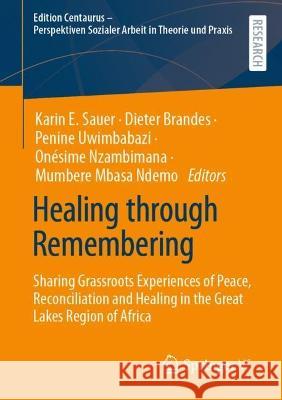Healing Through Remembering: Sharing Grassroots Experiences of Peace, Reconciliation and Healing in the Great Lakes Region of Africa » książka
topmenu
Healing Through Remembering: Sharing Grassroots Experiences of Peace, Reconciliation and Healing in the Great Lakes Region of Africa
ISBN-13: 9783658424466 / Angielski
Healing Through Remembering: Sharing Grassroots Experiences of Peace, Reconciliation and Healing in the Great Lakes Region of Africa
ISBN-13: 9783658424466 / Angielski
cena 363,12 zł
(netto: 345,83 VAT: 5%)
Najniższa cena z 30 dni: 346,96 zł
(netto: 345,83 VAT: 5%)
Najniższa cena z 30 dni: 346,96 zł
Termin realizacji zamówienia:
ok. 22 dni roboczych
Bez gwarancji dostawy przed świętami
ok. 22 dni roboczych
Bez gwarancji dostawy przed świętami
Darmowa dostawa!
Kategorie:
Kategorie BISAC:
Wydawca:
Springer vs
Seria wydawnicza:
Język:
Angielski
ISBN-13:
9783658424466











